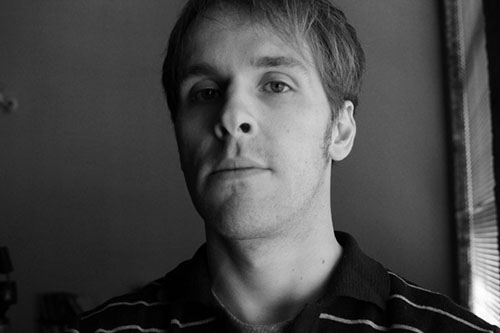
An Interview with Blake Butler
Wherever and whatever “the line” may be, the power of transgressive fiction comes from finding and crossing it. Plenty of books get there, but Blake Butler’s immense 300,000,000 begins on the far side and only goes farther, into a zone not meant for humans but still somehow perceptible to us, or to what will be left of us once what’s going to happen happens.
Opening as a prolonged rant, we’re thrown right away into the consciousness of a maniac called Gretch Gravey who, possessed by someone or something called Darrel, musters an army of lost boys to kill everyone in America (the 300,000,000 of the title is our former population). Into the wormhole opened by this devastation plunges Flood, a detective who serves as the reader’s shaky interpreter until he’s so overcome by the terrain that all sense is drained out of him. Then, in a place devoid of life but richly haunted by emergent, bastard forms of perception, the rest of the novel plays out in a state that I’ve never before felt a text induce in me.
The America of 300,000,000 is beyond collapse, over the brink that ours feels like it’s approaching. Threading its ultraviolence through suburbs, outlet malls, and a kind of normalcy wrapped around animal terror—“Outside, in the mash surrounding the house with cash and unending television…My skin around me did a slither”—its response to the spate of shootings of recent years does more than those events ever could to expose the black heart that both animates and threatens to annihilate everyone currently alive in this country.
Butler’s books have always been minds to sync up with and wander through, rather than guided tours of pre-existing places, but never before has he deformed the shape of his reader’s consciousness to this degree.
I spoke with Blake by phone in August. I was in New York and he was in Atlanta.
—David Rice
I. BLOW MYSELF OUT OF THE WATER
THE BELIEVER: 300,000,000 makes an extreme demand on the reader’s attention. It’s a book that says, “Fuck you, sit down, and listen.” It almost feels like bondage, another kind of violence beyond the violence of the subject matter.
BLAKE BUTLER: I’m glad that that comes through, because it was also violent to write. When I started it, I was probably in the worst emotional state of my life. I was like, “If I’m going to do this, I just have to explode. There’s nothing to hold back this time.“ I feel like books are marginalized at this point too, so if I’m going to get your attention to make you even open the book, I’m going to take...
You have reached your article limit
Sign up for a digital subscription and continue reading all new issues, plus our entire archives, for just $1.50/month.
Already a subscriber? Sign in




